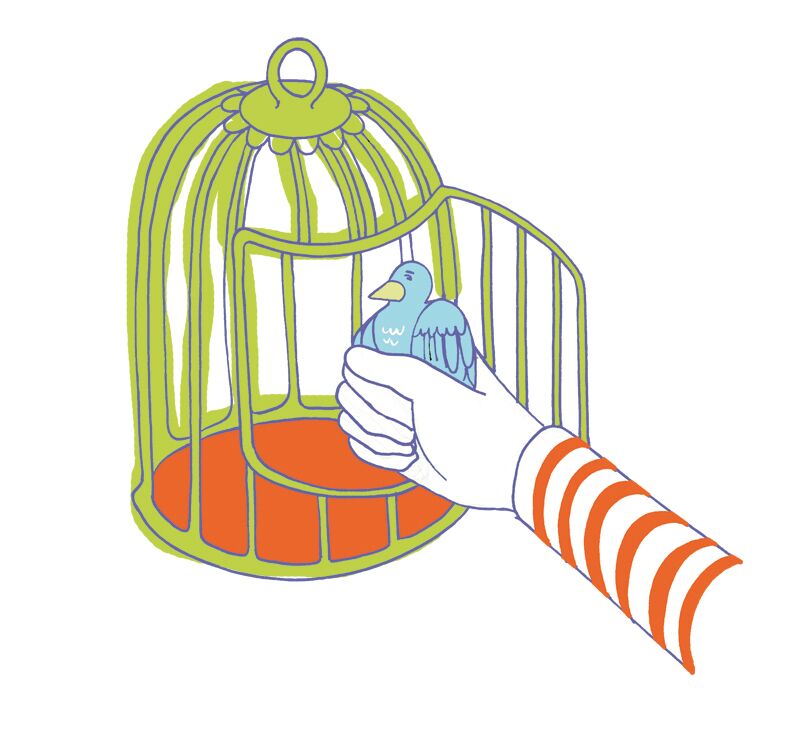Twitter is wrongly censoring certain swear words in order to prevent potential abuse
Twitter helps disseminate an idea quickly and provides users with a large audience to convey their messages to, no matter how many followers or important figures follow them. Although this is great when it comes to promoting an event or a social cause close to your heart, it can also have negative outcomes. As we have seen, social media platforms can lead to abuse and the spread of hateful messages. It might be easier to share your well-intentioned ideas, but it’s also easier to share ill-intentioned ones.
Twitter has been criticized by the public for inefficiently dealing with “trolls”—people who spread hateful comments to start fights. But lately, Twitter is using a new system. According to the Washington Post, instead of reviewing content that was signalled as abusive, Twitter detects certain keywords that, if used, will cause the platform to mute users for 12 hours. Muting is not the same as banning. You can still use your account, but if you mention someone who doesn’t follow you, the mentioned account won’t be notified about the tweet. And if someone retweets from the punished account, only those following the punished account will be able to see the retweet.
While this mute feature is not as drastic as a ban, I still find it highly problematic. What exactly is considered abusive speech? Twitter is a bit vague about this. The message Twitter issues when an account gets muted is: “We’ve temporarily limited some of your account features […] We’ve detected some potentially abusive behaviour from your account, so only your followers can see your activity on Twitter for the amount of time shown below.”
One user, Victoria Fierce, was recently muted for tweeting: “Fuck you, I gotta piss, and you’re putting me—an American—in danger of assault by your white supremacist brothers,’’ to Vice President Mike Pence. Twitter didn’t give a specific explanation for why she was muted—it might have been her use of the F-word or even the phrase “white supremacist.” It’s incredibly ambiguous. I’m assuming she was muted because of her swearing. While it’s not the most elegant way to speak, swearing has its purpose when trying to show outrage or convey emotion toward a certain topic. In my opinion, swearing, while being shocking, is a useful tool and should not be censored just to prevent potential harassment.
Using algorithms to punish users, rather than a human who can understand context, is problematic. Everything has context, and words that generally shouldn’t be used might be acceptable depending on the user’s intention. For example, how does a bot designed to oversee abusive tweets detect sarcasm, which is all about context? In its attempt to prevent abuse, Twitter may be silencing people who shouldn’t be silenced. That is terrifying, and we should be careful not to confuse “preventing hate speech” with “preventing people from using certain keywords.” I also find the 12-hour mute policy problematic. Since it’s done automatically, your ability to communicate with a larger audience is being restricted without understanding exactly what you did wrong. Twelve hours in today’s intense information-sharing cycle is a long time.
Some Twitter users have also pointed out that it seems the ban is mostly being used against people who tweet at a verified account. If this is actually the case, it causes another problem. Twitter is protecting public figures who can rely on a strong community of followers to help them fight the abuse. Meanwhile, small users with few followers or little influence become victims of abuse and are not prioritized by this new preventative system.
Since Twitter is its own entity, one could argue the platform has the right to put all the restrictions it wants on users. Yet as a major communication tool, I think it’s Twitter’s responsibility to make sure users’ right to free speech is being respected. I don’t wish for anyone to be the target of abuse on social media, but I think preventing innocent people from using certain words can fall into the category of censorship—which is a whole other serious action that cannot be accepted.
Graphic by Alexa Hawksworth
